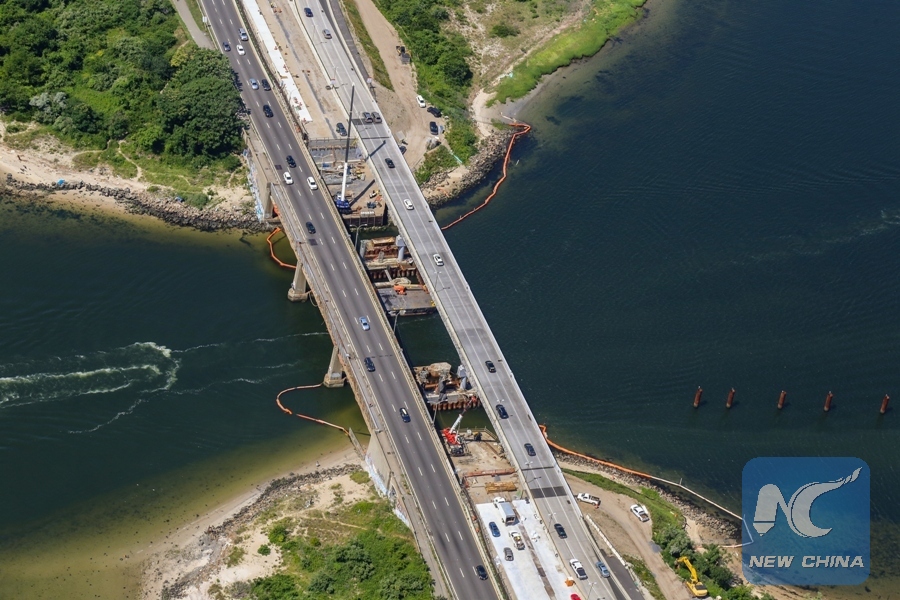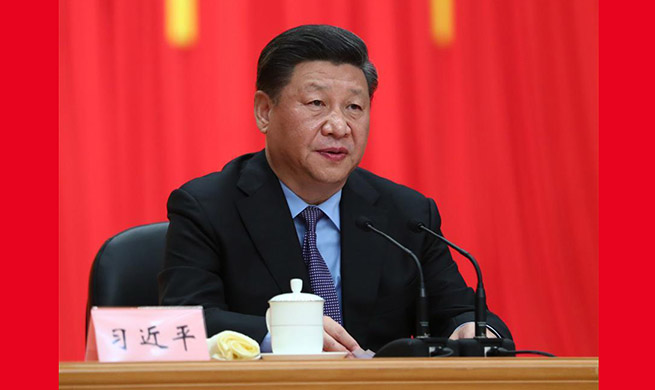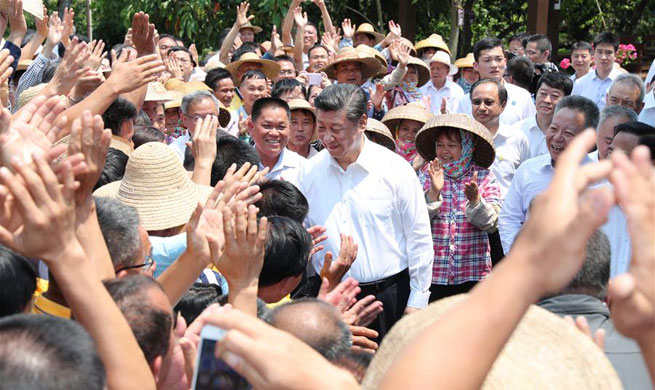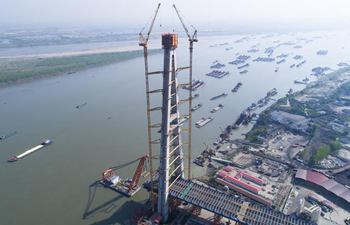
Photo taken on July 19, 2016 shows the construction site of the rehabilitating project of Gerritsen Inlet Bridge carried out by China Construction America in New York, the United States. (Xinhua/China Construction America)
NEW YORK, April 12 (Xinhua) -- The United States must avoid overusing national security review plea and ensure a level playing field and a predictable environment for Chinese enterprises investment in the country, experts said here on Thursday.
"It's not a choice between national security and economic development, we can have both," said Daniel Rosen, a founding partner of the New York-based research consultancy and advisory company Rhodium Group, adding that "is an entirely false notion that we have to make a choice between the two of them."
Chinese direct investment in the United States plummeted from 46.5 billion U.S. dollars in 2016 to 29.7 billion dollars in 2017, said Rosen at a panel discussion at the Harvard Club in New York City, quoting a report recently released by Rhodium Group.
The decline was partly because that the Committee on Foreign Investment in the United States (CFIUS), a multi-agency panel that reviews foreign purchases of American companies, has broadened its approach to reviewing Chinese investments.
The panel chaired by U.S. Treasury Department vets deals that could give a foreign investor control of a U.S. business for national security risks. It has been increasingly aggressive under the administration of President Donald Trump.
An unprecedented number of Chinese deals were delayed or abandoned last year as parties failed to obtain approval from the CFIUS, according to the Rhodium report.
"We have a big pipeline to acquire more U.S. companies" but only watch a little bit right now, said Yuan Ning, president of China Construction America, who was also on the panel.
Ni Pin, president of Wanxiang America Corporation, the Chicago-based arm of Wanxiang Group Company, called for "more professional, less political" CFIUS review of merger and acquisition deals between American and Chinese enterprises.
"It's very confusing coming to the United States," Ni said of the different treatment he received at the federal and state governments. "When you go to Washington D.C., you feel a lot of pressure ... they always question your motivation. Back to your own state, your governor is your best friend, he knows your wife's birthday more than you do, your kids birthday, whatever."
As a matter of fact, more and more U.S. state governors are looking towards China for an international solution to local economic problems and unemployment, said Scott Pattison, executive director and CEO of U.S. National Governors Association.
"We can double, triple and quadruple the vigor of security screening, looking for legitimate problems, and still have room to go so far beyond the 46 billion dollar watermark between the two largest economies," Rosen said.
"The real problem to getting there, it is not (that) we have to compromise national security, it is making sure that we are all confident that we are on a convergent path together, China and the United States, both of them head to the same direction as economies, in the future."
"The fundamental issue is not the nature of our two countries, it's more of communication," said Ni.
The panel discussion is part of the China Institute 2018 Executive Summit "U.S.-China Business in the New World Order," which brought together hundreds of top U.S. and Chinese CEOs, government leaders, and experts to examine challenges and opportunities in the changing business relations between the two largest economies in the world.
Founded in 1926, China Institute is the oldest bicultural, non-profit organization in America to focus exclusively on China.

















